共计 3734 个字符,预计需要花费 10 分钟才能阅读完成。
戴明博士(W.Edwards.Deming)是世界著名的质量管理专家,因对世界质量管理发展做出的卓越贡献而享誉全球。
戴明博士最重要的学说要数“戴明14要点”,这14要点在今天的 ISO 9001 / IATF 16949质量体系中几乎全部能找到对应内容。由此可见戴明管理思想的前卫性。
今天将14点重新作了一些梳理,附英文原文。
鼓励大家自己理解,一鸣的解读仅供参考。
1.对于改进品与服务要有持续不变的目的
Create constancy of purpose toward improvement of product and service, with the aim to become competitive and to stay in business, and to provide jobs.
关键词:愿景 | 使命 | 价值观
如果你是一个企业的管理者,对于企业的愿景、使命、价值观首先要想清楚,其次要表达清楚(让所有员工都清楚),再者做到言行一致。愿景、使命、价值观这几个东西虽然看起来有点形而上,但员工的士气还真的少不了 “meaning” “value” 这些看起来比较虚的东西来激发。
2.采用新观念
Adopt the new philosophy. We are in a new economic age. Western management must awaken to the challenge, must learn their responsibilities, and take on leadership for change.
关键词:变革
这一条说的是变革管理,管理者一定要时刻把握行业脉络,顺势而为,不能墨守陈规。举例来说,精益生产、六西格玛、智能制造这些课题都算是 “philosophy” 这个级别的,作为管理者,你是否把这些东西导入到了企业的运营之中?
3.停止靠检验来提高质量
Cease dependence on inspection to achieve quality. Eliminate the need for inspection on a mass basis by building quality into the product in the first place.
关键词:预防
质量是设计和制造出来的,不是检验出来的;检验是不增值的,是浪费,是事后控制,是要花额外成本的;管理者一定要有“第一次就把事情做对”的理想信念,要有预防思维。
4.废除以最低价竞标的制度
End the practice of awarding business on the basis of price tag. Instead, minimize total cost. Move toward a single supplier for any one item, on a long-term relationship of loyalty and trust.
关键词:双赢 Win-Win
一个企业没有合理的利润,如何维持健康的、可持续的发展?纯粹以价格导向低价竞标的企业今天在中国还有很多很多,这导致了许多恶性竞争,同时为质量埋下祸根,最终没有赢家,全是输家。
5.不断提高生产与服务系统,以提高质量与生产力,从而成本会不断降低
Improve constantly and forever the system of production and service, to improve quality and productivity, and thus constantly decrease costs.
关键词:持续改善
持续改善是质量永恒的哲学;不断地、系统地PDCA,质量和效率提高的同时,还能降低成本;丰田在这方面可属典范。
6.建立在职训练制度
Institute training on the job.
关键词:人才培养
企业的革新需要人来完成,因此人首先就要完成自我更新。优秀企业与差劲企业的本质区别在于人。
7.建立领导体系
Institute leadership (see Point 12 and Ch. 8). The aim of supervision should be to help people and machines and gadgets to do a better job. Supervision of management is in need of overhaul as well as supervision of production workers.
关键词:领导力 Leadership
建立领导体系的本质是建立一个“在其中每个人都能释放其最大潜能的生态系统”,这个系统包括Deming 提出的这14点。
8.排除恐惧,使人人都能有效地为公司工作
Drive out fear, so that everyone may work effectively for the company.
关键词:信任 Trust
恐惧可能源于“末位淘汰”的制度,可能源于“不喜欢坏消息的老板”,作为管理者,你一定要清楚那些让人“恐惧”的东西,这些恐惧会成为组织走向卓越的绊脚石。
9.破除部门与部门间的藩篱
Break down barriers between departments. People in research, design, sales, and production must work as a team, to foresee problems of production and in use that may be encountered with the product or service.
关键词:沟通
据说80%的问题产生都跟沟通有关,而部门之间的沟通不畅产生的损失尤其巨大;试想如果设计部门、销售部门各干各的,互不相通,那么后果可能就是:顾客想要什么产品设计者不知道,设计方设计的产品顾客不想要。
10. 消除那些要求员工做到零缺陷及高生产力水准的口号、训示及目标
Eliminate slogans, exhortations, and targets for the work force asking for zero defects and new levels of productivity. Such exhortations only create adversarial relationships, as the bulk of the causes of low quality and low productivity belong to the system and thus lie beyond the power of the work force.
关键词:务实
在东亚文化中,喊口号并非就一定不可取,有时候恰到好处的口号可以提振士气,增强凝聚力;但如果是空洞的口号,不切实际的口号,不但不能提振士气,反而适得其反。所以务实很重要。
11. 取消定额或指标
a. Eliminate work standards (quotas) on the factory floor. Substitute leadership. b. Eliminate management by objective. Eliminate management by numbers, numerical goals. Substitute leadership.
关键词:质量 Or 数量?
定额制关心的只是数量而非质量,人们为了追求定额或目标,可能会不惜一切代价,包括牺牲产品质量 和组织利益。这就是为什么“计件生产”在今天正在被舍弃的原因。
12. 排除那些不能让员工以工作为荣的障碍
a. Remove barriers that rob the hourly worker of his right to pride of workmanship. The responsibility of supervisors must be changed from sheer numbers to quality. b. Remove barriers that rob people in management and in engineering of their right to pride of workmanship. This means, inter alia, abolishment of the annual merit rating and of management by objective.
关键词:主人翁意识
人类天生有追求美好事物的可贵品质,我们都希望把自己的工作做好,获取认可,并且引以为荣。但不合格的管理者、不适当的设备、有缺陷的材料会对人们造成阻碍;这些阻碍因数需要加以消除。
13. 建立一个有活力的教育与自我提高机制
Institute a vigorous program of education and self-improvement.
关键词:学习型组织建立
我们已经进入到终身学习时代。如今知识更新越来越快,竞争越发激烈,这就要求组织里的每个人都要不断地发展自己,以便适应未来的要求。
14. 让公司每个人都致力于转型
Put everybody in the company to work to accomplish the transformation. The transformation is everybody’s job.
关键词:全员参与
使组织中的每个人都行动起来去实现组织的转变,这就是“全员参与”。
更多关于戴明管理思想,推荐阅读《戴明论质量管理》
文章转自:质量管理笔记

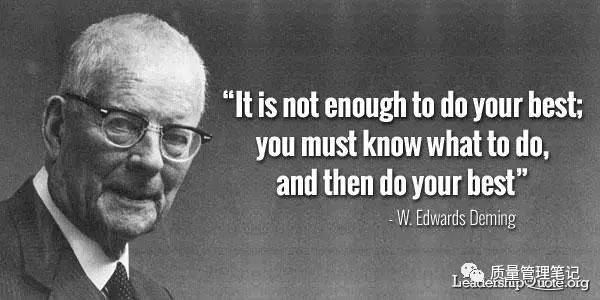
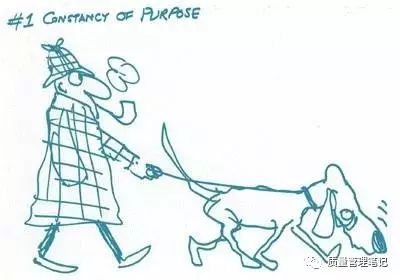
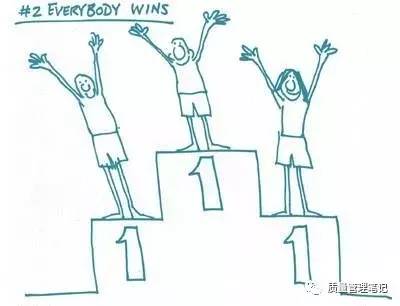
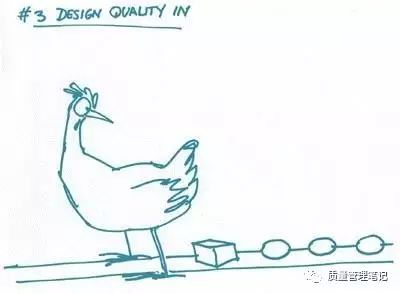
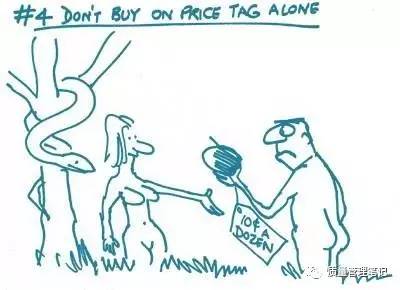
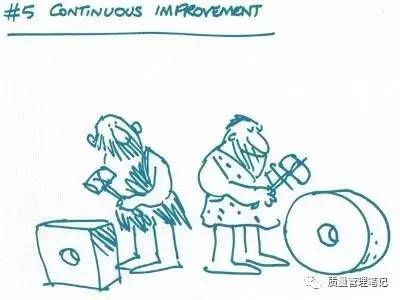
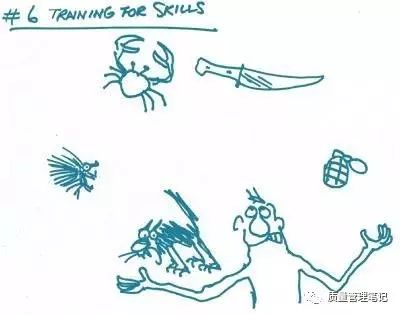
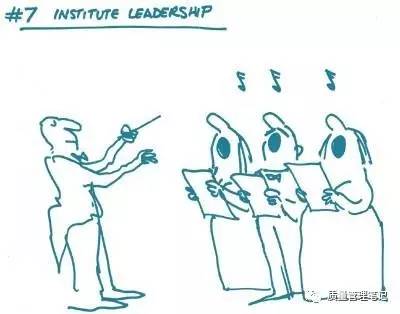
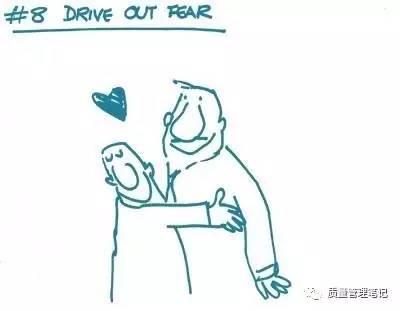
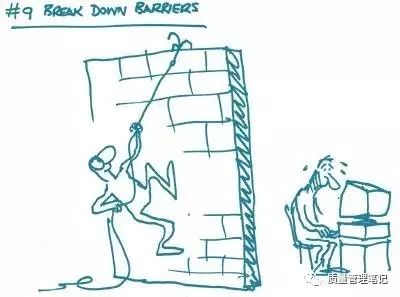
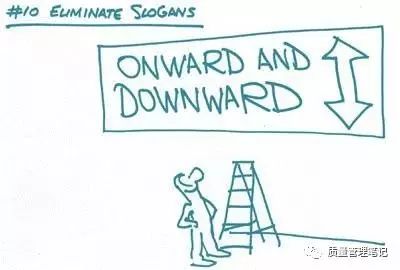
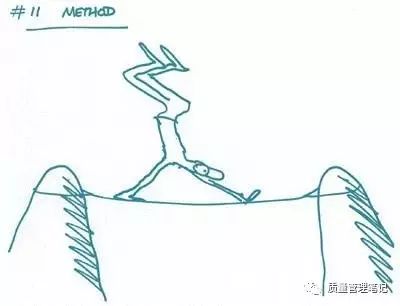
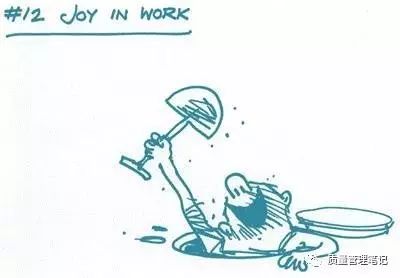
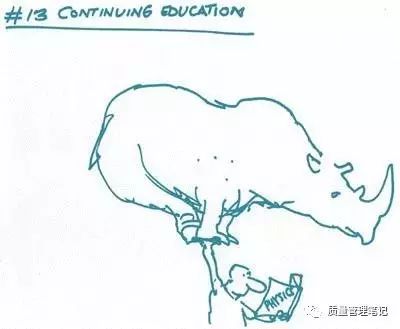
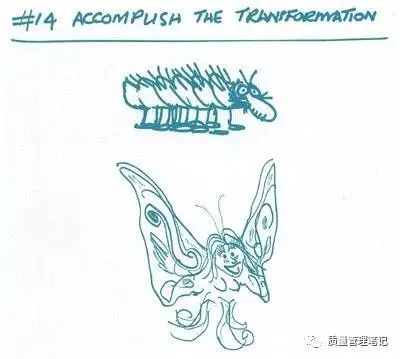










 透彻理解卡方检验 - 汽车质量管理笔记
[…] 化简后的式子是我们在卡方检验中需要用到的式子,所以请大家牢记!对于上述式子有疑惑的读者可以学习基础的概率论,也可以参考我之前写的一篇关于独立的文章(《【直观数学】如何理解两事件间的独立关系》)。如果没有问题的话,我们可以进入到卡方检验原理与步骤的主体介绍部分! […]
透彻理解卡方检验 - 汽车质量管理笔记
[…] 化简后的式子是我们在卡方检验中需要用到的式子,所以请大家牢记!对于上述式子有疑惑的读者可以学习基础的概率论,也可以参考我之前写的一篇关于独立的文章(《【直观数学】如何理解两事件间的独立关系》)。如果没有问题的话,我们可以进入到卡方检验原理与步骤的主体介绍部分! […]